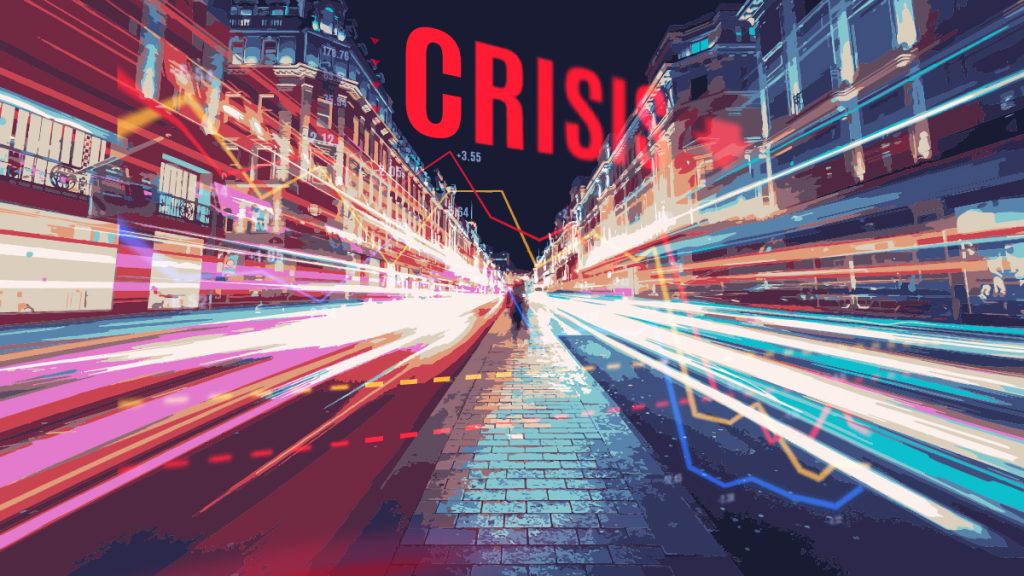
Smart cities, cognitive cities’ predecessors, as a concept, are not as brand new as you might think. In fact, in 1974, Los Angeles created the first urban big data project, “A Cluster Analysis of Los Angeles,” fast forward to 1994, and Amsterdam hopped on the wagon with a virtual digital city, “De Digital Stad” (DDS), and it all snowballed from there. Today, smart cities around the world have made significant progress with their smart city initiatives and the adoption of cutting-edge smart technologies to improve the sustainability, energy efficiency, and carbon emissions of their own cities. Nevertheless, these cities were not exempt from the COVID-19 pandemic damages, especially regarding the global economy. We are left wondering if the smart cities impact extends to withstanding life’s curveballs and bolstering their citizens’ businesses or leads to a crumbling society.
How the Designers Intended
A smart city relies on information and communication technology (ICT) to increase operational effectiveness, disseminate information to the general public, and improve the quality of public services and citizen welfare. Through artificial intelligence and data analysis, it better uses the city’s physical infrastructure to promote economic and cultural growth. In other words, smart cities not only digitize our lives but ensure they run smoothly from an operational standpoint.
Smart Cities and Your Business
Businesses gain from a smart city’s core development revenue but also exponentially more from technology and sophisticated predictive analysis. Smart cities and the technologies involved in their architecture are not just for governmental purposes. They aid you as a business owner on a daily basis.
Sustainability
The term “sustainability” seems overused at this point. But it is one of the fundamental principles of smart cities. The world population has recently reached an all-time high of 8 billion people, and it is continuing to rise. And according to the UN Department of Economic and Social Affairs, by 2050, two out of every three people will likely reside in cities or other urban centers, meaning that by the middle of the century, an additional 2.5 billion people could live in urban areas. A city’s existing resources significantly impact the environment. So, a company operating in a smart city will take a sustainable approach to issues like responsible waste disposal, increased emphasis on energy conservation, etc. Add to that the growing customer demand for sustainability, and companies operating in intelligent cities report better customer relations and higher profits.
Booster Shot for the Economy
Without a doubt, the economy will experience a significant boost as a result of the technological developments and businesses developed to add value to smart cities. Companies can also use the data collected by the devices and infrastructure used in smart cities to understand their target demographic better and offer better services. Not to mention the effect it has on the employees of any enterprise, big or small: The technical elevation enables city workers to move forward without worrying about less significant aspects of their work/personal lives. The majority of daily tasks can now be handled by modern technology.
In the Face of Adversary
Since the outbreak, there isn’t a corner of the world that is safe from the ramifications, except the uncontacted people living on North Sentinal Island, the Sentinelese. The most damaging one has been the most significant economic downturn of the decade. Were smart cities built with alleviating such damages on businesses in mind?
Smart Cities Impact: Planning tools During Crises
Digitalization and smart city initiatives enhance urban resilience by implementing risk-reduction practices and strategies. So, smart city initiatives made possible by information and communication technologies (ICTs) are crucial for quick response, effective recovery, and enhanced learning through experience. Therefore, technology aids in providing services for businesses, healthcare, social interactions, and other areas. Additionally, it improves resiliency and adaptation capacity, investments’ profitability, and residents’ quality of life.
Smart Cities Impact: Entrepreneurial Opportunity
Exploitation provides opportunities for venture creation and growth, whereas opportunity identification results in the origination of a venture idea. Similarly, smart cities offer many opportunities for businesses to find and seize untapped market niches. In addition to assisting cities in their social, cultural, and urban development, networked infrastructure creates new market opportunities that entrepreneurs can exploit. This availability is due to the sensors’ enormous data collection, which entrepreneurs can use to strengthen their market propensity. The gathered information allows for a more dynamic analysis of city life and gives entrepreneurs resources to use creatively.
Smart Cities Impact: Corporate Entrepreneurship
Smart city technologies involve other SMEs in their supply chains, even though corporate entrepreneurship initiatives primarily drive them. The environment gets more complicated as more people actively participate in the operations and supply chain. Therefore, businesses must coordinate not only with other companies but also with the city government, the general public, and other participants in the supply chain.
Wrap-up
Smart cities impact the lives of its citizens by providing an alternative to using strict bureaucratic procedures to manage a city’s assets. In actuality, it is a principle of urban planning that promotes social engagement and the technological integration of infrastructure. Smart cities offer access to tremendous business prospects using technology to improve service effectiveness and meet citizen needs.
Inside Telecom provides you with an extensive list of content covering all aspects of the tech industry. Keep an eye on our Impact section to stay informed and up-to-date with our daily articles.